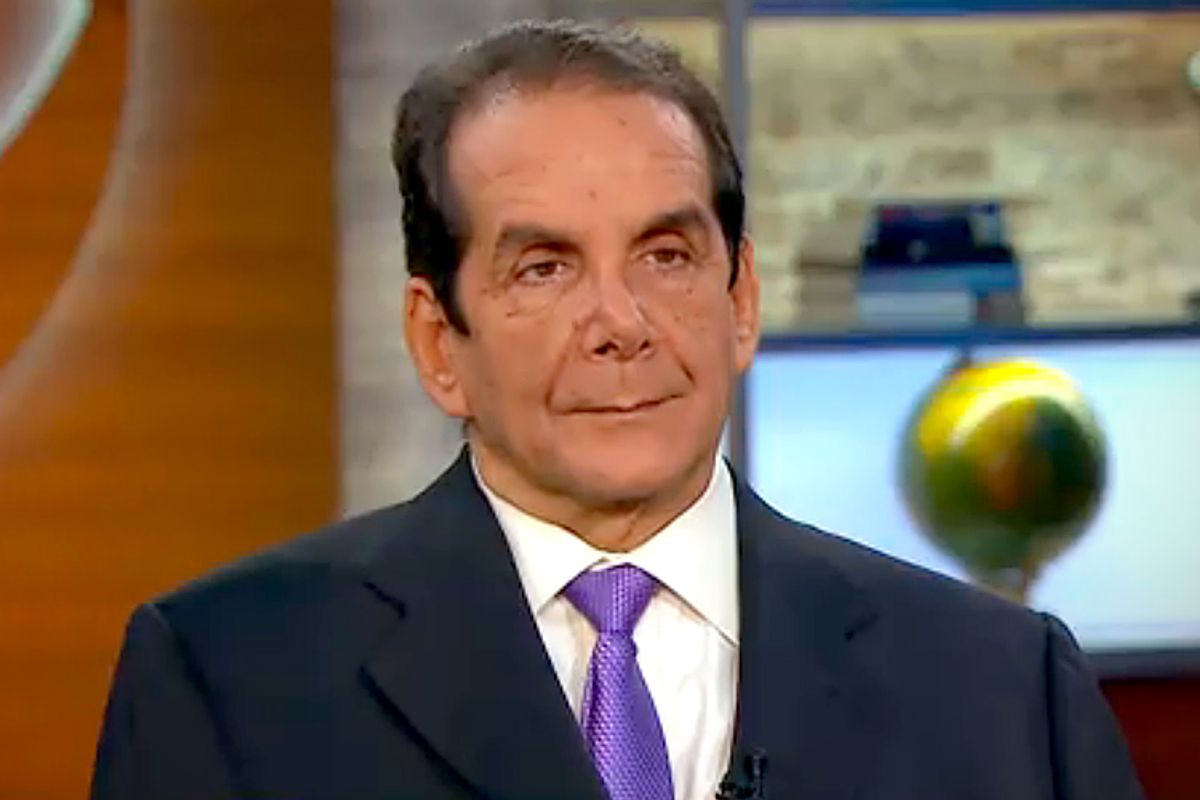It’s been a cruel month for Obamacare. The website isn’t working, and hundreds of thousands — if not millions — of people are seeing their health plans scrapped in favor of replacements that are more expensive and, sometimes, not even as good. Adding fuel to the fast-growing fire, “If you like your plan, you can keep it,” the president’s repeated promise about healthcare reform, is now considered by nearly half of Americans to have been a lie. Not coincidentally, Obama’s sporting the lowest approval ratings of his presidency to date.
Unsurprisingly, these ill developments have the right in a nearly euphoric state. The glee has been palpable (which, to be fair, one could have said of the left during the days after the government shutdown). Yet in a perfect display of overexcitement, many on the right have taken a few consecutive bad news cycles for Democrats and concluded that liberalism itself — yes, liberalism itself — is somehow dangling on the edge of a cliff, just waiting for a few more Healthcare.gov 404s to send it tumbling into the abyss.
The highest-profile prophet of liberalism’s coming demise is the neoconservative pundit Charles Krauthammer, who recently told Bill O’Reilly that the problems with Obamacare were so bad that they were causing the “unraveling” of the Obama administration and the Democrats’ majority in the Senate. Even more melodramatically, Krauthammer thundered that, with the faulty rollout of Obamacare, “we could be looking at the collapse of American liberalism.” The president’s healthcare reform, he said, “is the big thing” for American liberals. “The biggest in a hundred years.”
Krauthammer was joined by Forbes’ Steven Hayward, who predicted that Obamacare would be repealed “well in advance of the 2014 elections.” How, exactly, this was going to happen with President Obama still holding the veto pen, Hayward doesn’t say. But he doesn’t skimp on the hyperbole, calling Obamacare “the domestic policy equivalent of the Iraq War” (which is totally true except for, you know, all the death and dying). He portentously ends his post by warning liberals that Obamacare’s “cost to liberalism may prove fatal.”
And then there’s Mediaite’s Noah Rothman, who called Obamacare’s troubles “a political calamity” and “the Fort Sumter moment in a Democratic civil war.” The civil war, apparently, will be fought not only over how best to achieve universal healthcare in the event of Obamacare’s collapse — a topic Rothman claims divides the left like no other —but also over Democrats’ “forthcoming struggle to preserve their very viability against the hubris of one man.” It’s Obamacare or the Democratic Party itself, then. High stakes, indeed.
If you put all this right-wing prognostication and concern-trolling together, it’s hard not to laugh.
Krauthammer says Obamacare is the most important liberal policy in 100 years, for example; but why stop at 100? Why not go all the way to the founding, or hell, why not go all the way back to Genesis itself? (Did they have liberals in the Garden of Eden?) Hayward, meanwhile, says Obamacare is the domestic equivalent of the Iraq War — but, again, why stop there? Maybe Obamacare is best understood as the domestic equivalent of every war fought in American history put together … plus a few nuclear weapons, too? And if Rothman is going to say that the viability of the Democratic Party — the oldest political party in the world — is dependent upon Democrats abandoning President Obama, why not take it a step further and say liberalism itself won’t survive unless Obama is stripped of his powers and sent off in a lonely lifeboat into the middle of the sea?
Part of what makes the right’s theatrics over Obamacare all the more risible is the fact that, for a policy that supposedly represents all the hopes and prayers of liberalism itself, Obamacare isn’t very liberal. As you’d think we’d all know by now, the basic framework of the plan has conservative origins. It was Romneycare before it was Obamacare; and it was a Heritage Foundation idea even before that. Indeed, Obamacare is not only far removed from the liberal ideal of single-payer, but it doesn't even have a public option to provide some semblance of government healthcare without the profit motive. So to describe Obamacare as the alpha and omega of liberalism is about as intellectually disingenuous as describing No Child Left Behind the ultimate embodiment of conservatism. It’s just not.
Now, if the right were to say the idea of universal healthcare coverage itself is the principle being tested by Obamacare’s performance, that would be a debate worth having. But “repeal and replace,” the mantra that for years now has defined the GOP’s position with regard to Obamacare, implicitly grants universal coverage as a mutual goal. (“Repeal and shrug” doesn’t have the same ring to it, you see.) No mainstream conservatives are willing to stand in front of a camera and make the argument that some people deserve healthcare while others do not — but that’s the very argument Obamacare is designed first and foremost to rebut. That’s Obamacare’s liberalism, not the broken website, not the state-based exchanges, and not the individual mandate.
So Obamacare can continue to fizzle as it has during its inaugural month. It’ll be bad for Democrats, no doubt, and bad for the president. It may even be temporarily bad for the larger liberal belief that an activist government can solve problems that we can’t solve for ourselves. But the essence of liberalism when it comes to healthcare reform — the belief that everyone deserves healthcare, and that no one should have to choose between their physical and their financial well-being — will go untouched. Until the day the GOP is willing to strip those who have gained healthcare through Obamacare of their new "entitlement," and until the day voters reward them for doing so, liberalism will endure.
In other words: Sorry, Krauthammer, liberalism isn't going anywhere.



Shares